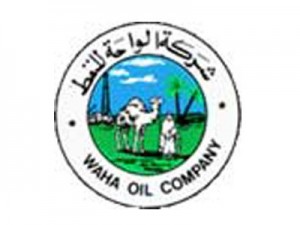Libya's biggest oil export terminal, Es Sider, remains shut after closing on July 28 amid protests by staff and armed guards, Ibrahim Al Awami, director of the inspection and measurement department of the oil ministry, told reporters at Es Sider today. Es Sider can store crude for 20 more days before filling up with production from some fields feeding storage tanks at the port already pumping at less than a 10th of previous levels.
According to Bloomberg, production from Waha Oil Co., one of the companies supplying crude to Es Sider, has dropped from 360,000 barrels a day to 30,000 barrels per day, and some wells will need to be shut if the sit-in protest continues beyond 20 days.
Interruptions at ports and other installations across Libya lowered nationwide oil production to 800,000 barrels day last month, which is half of the post-revolution peak of 1.6 million barrels a day reached exactly a year earlier, the Bloomberg data shows.
Es Sider’s crude oil storage tank capacity has been reduced to 4.5 million barrels, with some of that still unused. The original capacity of 6 million barrels at 19 tanks has shrunk because three tanks are undergoing maintenance and another was burned down during the 2011 uprising that ousted Muammar Qaddafi.
Four oil tankers are currently moored at Es Sider, waiting to load, Al Awami said. Three of them arrived July 31 and the fourth on Aug. 3, according to data in the port’s control room.
Waha is 59 percent owned by Libya’s state-run National Oil Corp., with the rest held by ConocoPhillips (COP), Marathon Oil Corp. (MRO) and Hess Corp. (HES) Other producers supplying crude to the port last month were Total SA (FP), Suncor Energy Inc. (SU)’s Petro-Canada and Libya’s state-owned Arabian Gulf Oil Co.
In a press conference earlier today, Oil Minister Abdulbari Al-Arus explained that negotiations to resolve protests at Es Sider and two other ports, Ras Lanuf and Zueitina, are currently underway.
(Source: Bloomberg)





